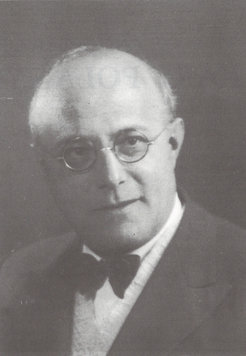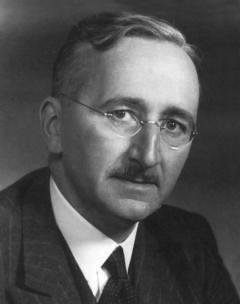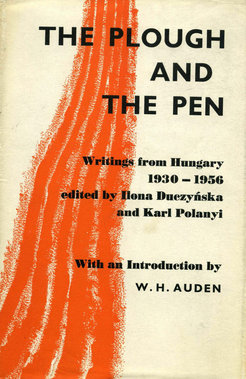On the Road to a New Fascism?
Autor: Chris Hann
Karl Polanyi’s The Great Transformation was published in March 1944 in New York. In April, Friedrich Hayek’s The Road to Serfdom was published in London. Neither can be classified as a work of professional sociology or social science. These are popular books by scholars aiming to reach a wide audience. But while Hayek’s book achieved its goal very rapidly (thanks in part to an abridged version published in the US magazine Reader’s Digest), Polanyi’s much longer text enjoyed only modest sales. They differ hugely in style and substance. Polanyi plunges into the details of British economic history and colonial ethnography to conclude with arguments for democratic socialism. Hayek’s work is more abstract and shrill. He views the economic doctrines of liberalism, held by Polanyi to be responsible for the catastrophes of fascism, as the key to individual liberty as well as economic efficiency. For Hayek, socialist planning leads to totalitarianism. He recommends free markets with minimal state intervention. Both Polanyi and Hayek are rooted in Austrian economics. This post explores not the complex intellectual history that preceded the 1944 publicationsi but the pertinence of these contrasting economic philosophies for what followed, and hence for the state of world society today, 75 years later.
The first postwar decades are commonly considered to be an era in which the economy is “re-embedded” in society (to use the familiar metaphor of The Great Transformation). The tensions of the Polanyian “double movement” (on the one hand, the penetration of the principle of the market, and on the other, the “self-protection” of society) are mitigated by Keynesian principles of economic management in order to maintain high employment and consolidate welfare states. The socialist Karl Polanyi was not impressed by these compromises, not even by the strong welfare states of Scandinavia. Nevertheless the mixed economies of this period and the financial system negotiated at Bretton-Woods enabled liberal democracies to prosper in this generation.
These developments were undermined by hydrocarbon politics and the collapse of Bretton-Woods in the 1970s. By the 1980s, President Reagan and Prime Minister Thatcher (quoting Hayek as her guru) were attacking the pragmatic balance of embedded liberalism and proclaiming instead the virtues of the free market. Neoliberal dogmas were disseminated globally following the collapse of the Soviet bloc. With the demise of central planning, radical privatization and marketization led to extreme dislocation. Most postsocialist Eastern European states were eventually admitted to the European Union. But the Treaty of Maastricht and the creation of the Euro ensured that, as the dominance of the principle of the market induced ever greater mobility of capital and labour, earlier ideals of “social Europe” were now jettisoned. Austerity responses to the international financial crisis that began in 2007 have demonstrated the contradictions of a capitalism that appears increasingly disembedded once more.
Whether it be a decision to save or to consume, to migrate in search of higher wages or to accept what is available in one’s Heimat, economic life always plays out in contexts that are structured both socio-culturally and institutionally. The metaphor of disembedding cannot be interpreted too literally: we need to scrutinize what Polanyi termed “instituted process” (Polanyi 1957; see also Hann and Hart 2009; Harvey 2006). Close inspection reveals that the regime of free markets depends critically on strong states to defend property rights and enforce the interests of capitalists generally. If Polanyi were writing today, he would probably pay attention to the ways in which the powers of even the strongest states have been subverted by transnational corporations, astutely avoiding taxation and accountable only to their own shareholders. He would be shocked by the way in which neo-patrimonial regimes, notably that in his homeland, Hungary, manipulate institutions (such as the mechanisms of the European Union) not for pragmatic planning to serve the interests of their populations but to cement links of clientelistic dependency within a quasi-monopolistic governing party.
The new institutionalization of the economy is accompanied by an alarming rise of “populist” politics around the world. The “mattering forth” (Mazzarella 2019) of popular sentiment behind leaders such as Orbán in Hungary or Trump in the USA is calling the compatibility of capitalism and democracy into question more sharply than ever before. In this conjuncture Karl Polanyi’s analysis of the tensions of the double movement is prescient. When a society such as Hungary, which had been pursuing rather successful experiments in “embedded socialism” from the mid-1960s onwards, is abruptly exposed to the winds of global laissez faire, it responds by seeking to defend itself, by reasserting values that appear to be threatened in the new global marketplace. In practice, this has meant camouflaging new class divisions by whipping up ethno-national sentiment. While Roma and Jews are the familiar scapegoats within the country, Brussels (the seat of the neoliberal EU) has replaced Moscow (the seat of the old system of central planning) as the primary external enemy. The details may differ but the populist nexus is one that Polanyi would have recognized, given the similarities to the roots of European fascism. Some commentators go so far as to detect the danger of “Fascism 2” in contemporary extremist politics (Holmes 2016).


The Great Transformation is the definitive analysis of where the anti-socialist, laissez faire dogmas of The Road to Serfdom can lead. Both books have been reprinted many times and widely translated, but Polanyi’s message has never been compressed into a Reader’s Digest format. Sales of Hayek have always outstripped sales of Polanyi and continue to do so. Above all in the Anglo-Saxon countries, thirty years after the end of the Cold War, the need to demonize socialism is a habit that is hard to shake off. Karl Polanyi offers a comprehensive alternative to the simplistic notion that the spontaneity of free markets is the best guarantee of individual liberty. The most important question of our time is whether the present crisis of Hayekian ideology can be resolved by a further revival of Keynesian liberalism, or whether this really is an “endgame” for capitalism (see Streeck 2016). The optimist Polanyi would hope the latter.ii
Acknowledgement
Thanks to Brigitte Auenbacher and Andreas Novy for the invitation to contribute to a symposium to mark the 75th anniversary of the publication of The Great Transformation. An abbreviated version of this text will appear in a forthcoming issue of Global Dialogue, edited by them.
References
Bockman, Johanna, Ariane Fischer, and David Woodruff. 2016. ‘‘Socialist Accounting’ by Karl Polanyi: with preface ‘Socialism and the Embedded Economy’’ Theory and Society 45 (5): 385–427.
Duczyńska and Karl Polanyi (eds.) 1963. The Plough and the Pen. Writings from Hungary, 1930-1956. London: Own.
Hann, Chris and Keith Hart (eds.). 2009. Market and Society: The Great Transformation today. Cambridge: Cambridge University Press.
Harvey, Mark. 2007. ‘Instituting Economic Processes in Society’ in Mark Harvey, Ronnie Ramlogan and Sally Randles (eds.), Karl Polanyi. New Perspectives on the Place of the Economy in Society. Manchester: Manchester University Press, pp. 163-84.
Hayek, F. A. 1944. The Road to Serfdom. London: Routledge.
Holmes, Douglas R. 2016. ‘Fascism 2’. Anthropology Today 32 (2): 1-3.
Mazzarella, William. 2019. ‘The anthropology of populism: beyond the liberal settlement’ Annual Review of Anthropology 48: 45-60.
Polanyi, Karl. 1944. The Great Transformation. Origins of Our Time. New York: Farrar and Rinehart.
------. 1957. ‘The Economy as Instituted Process’ In Trade and Market in the Early Empires, edited by Karl Polanyi, Conrad Arensberg and Harry Pearson, 243–70. Glencoe: Free Press.
Streeck, Wolfgang. 2016. How Will Capitalism End? Essays on a Failing System. London: Verso
Notes
i Original perspectives on the development of an economic system (in this case industrial capitalism) often come from scholars located on its margins (Adam Smith is perhaps the most celebrated example). On the Austrian debate of the 1920s see Bockmann, Fischer and Woodruff 2016.
ii Karl Polanyi is frequently characterized as a Viennese thinker. This is a misrepresentation. He was born in Vienna in 1886, lived there for most of the 1920s, and was undoubtedly influenced by the same Austrian currents of economic thought as his opponents in the “socialist accounting” debate. But it is worth noting that Polanyi always self-identified as a Hungarian. In the last years of his life, living in Canadian exile, he and his wife devoted loving attention to the translation of evocative “populist” poems from Hungarian into English (Duczyńska and Polanyi 1963). Radical socialist internationalist critique of the political economic forces that lead to fascism is entirely compatible with lasting emotional attachment to one particular people in a particular place.



